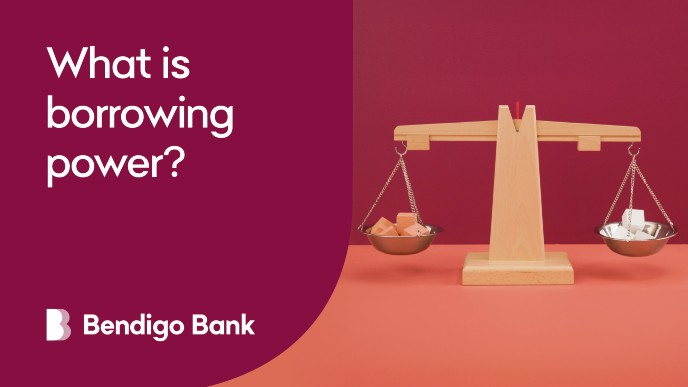Whether you’re buying your first or your fifth property, understanding your borrowing power is the first step to making that big decision. Borrowing power varies from person to person and depends on a number of factors. Here’s how to understand what borrowing power is, what affects it, and how to calculate yours.
What is borrowing power?
Your borrowing power is the amount a lender is willing to lend you to purchase an asset, like a property. Everyone’s borrowing power is different, and you may have stronger or weaker borrowing power at different points in your life.
How is borrowing power assessed?
Every lender assesses borrowing power differently. However, it generally involves an assessment of your income, your expenses, your assets (eg. property or shares), your liabilities (eg. debts), your financial position, and any government assistance you may be eligible for.
You may be asked to supply:
- Current income streams i.e. PAYG and self-employed income (most recent payslips or financial statements for self-employed applicants).
- Number of dependants within the household and marital status.
- Current monthly general living expenses (e.g. utilities, groceries, motor vehicle, insurances, school and day-care expenses).
- Expenses relating to any properties currently held (e.g. council rates).
- Any existing loans or credit card facilities held and the balance/limit together with minimum monthly repayment amount required.
- Information relating to your eligibility for government grants or assistance, like the First Home Owners Grant (FHOG), or stamp duty concessions.
Your lender’s job is to understand what you want to achieve and the price range you are looking at. They will then assess whether you can realistically achieve that in your current circumstances.
For example, let’s say you’re looking to buy a property in the $650k - $750k bracket. A lender will use the information supplied and assess what level of repayments you can afford. They may then provide a pre-approval up to a certain loan amount. You can use this amount to help with your property search.
Things that increase or decrease your borrowing power
There are various factors that increase or decrease your borrowing power. These can include:
- Lifestyle expenses. Lenders will take a look at where your money goes each month, and an expensive lifestyle could impact how much is leftover to make repayments. Aim to practise good spending and savings habits before applying for a home loan.
- Government grants or assistance. If you’re eligible for government support like the First Home Owners Grant, the First Home Guarantee Scheme, or a stamp duty concession, the deposit required could be lower.
- Debts and credit limits. Outstanding debts, and even unused credit limits, can impact your borrowing power. Look to pay down consumer debt and consider reducing credit limits before buying property.
How to calculate your borrowing power
Bendigo Bank’s free prequalification calculator estimates how much money you could borrow for your property purchase. It factors in things like lenders mortgage insurance, stamp duty and government grants or concessions, to give you a more accurate idea of what you can borrow.
The prequalification calculator can get you pre-qualified in just 30 minutes, with no need for paperwork or credit checks. You’ll get a clear idea of what you can borrow before you approach a lender for a formal assessment. Get prequalified now.







